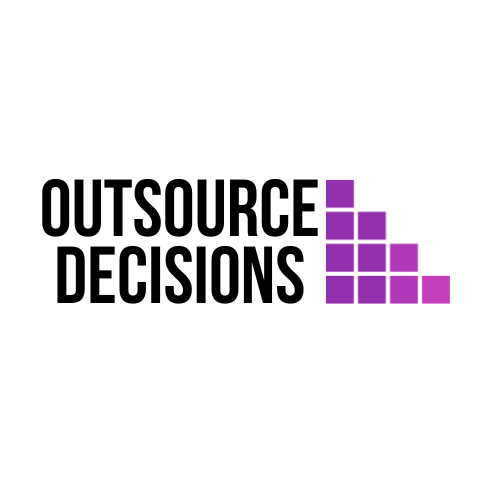Dealing with problems is part of life. We all face challenges and obstacles every single day. Some problems are small and easily solved. But others are big, hairy, and complex. These big problems can cause a lot of stress, anxiety, and overwhelm if we don’t have effective strategies to tackle them.
The good news? There are tons of great books out there on problem-solving and decision-making. Reading the right books can equip you with a mental toolbox full of powerful techniques to calmly work through any problem. Let’s dive into my top 10 recommended reads on this crucial topic.
1. A Mind for Numbers by Barbara Oakley
Barbara Oakley’s book “A Mind for Numbers” is a fantastic resource for anyone looking to improve their problem-solving abilities in math, science, and any technical subject.
The core idea is that we all can learn difficult subjects like math and science. We just need to understand how our brains work and apply the right learning techniques.
Some key takeaways:
- The Value of Focused and Diffuse Thinking
- How to Overcome Procrastination and Mental Blocks
- Memory Techniques Like Spaced Repetition
- How to Effectively Take Notes and Do Problem Sets
The book is filled with concrete examples, exercises, and neuroscience-backed advice. It’s an easy, fun read that will tangibly improve your quantitative problem-solving skills.
2. Thinking in Bets by Annie Duke
As a former professional poker player, Annie Duke understands decision-making under conditions of uncertainty better than most. Her book “Thinking in Bets” explores how we can improve our luck and make better decisions.
Some key insights:
- Being “Unlucky” is Often the Result of Poor Decision-Making
- Learn to Separate the Quality of our Decisions from the Outcomes
- When to Trust Expert Intuition vs. Hard Data
- How to Account for Hidden Information in Our Decision Process
The great thing about this book is that it uses easy-to-understand poker examples and analogies. But the lessons apply to all domains – business, career, health, you name it. After reading this, you’ll view uncertainty in a whole new light.
3. The Great Mental Models by Shane Parrish
The best problem solvers and decision makers leverage a toolbox of mental models from various disciplines like biology, physics, mathematics, and psychology.
This book by Shane Parrish breaks down dozens of these powerful models in simple terms, like:
- Inversion Thinking
- Compounding Effects
- Probabilistic Reasoning
- Game Theory
- Incentives and Feedback Loops
With digestible examples and breakdowns, this book teaches you how to “think better” in a multidisciplinary way. After reading, you’ll view the world through a more rational, logical lens.
4. Range by David Epstein
In our modern, specialized world, we tend to think specialists and experts hold the key to solving complex problems. But David Epstein argues in “Range” that being a generalist – having broad experience across multiple domains – is the true superpower.
The book cites research showing the importance of:
- Taking the Winding Path (Not Hyper-Specializing Early)
- Learning to Make Conceptual Connections Across Fields
- Keeping an Open and Curious Mindset
- Seeing The Big Picture Beyond Your Narrow Role
It’s a fascinating take on cultivating range, neuro-diversity, and cross-pollination of ideas to solve multi-faceted problems that defy standard solutions.

5. Algorithms to Live By by Brian Christian and Tom Griffiths
You may think algorithms are just for computer science and programming. However the authors of this book argue that many algorithms used in tech can teach us incredible problem-solving lessons for our everyday lives.
Some mind-blowing examples:
- How Explore/Exploit Tradeoffs Apply to Dating, Making Friends, and Making Plans
- How Caching Strategies Help Us Remember Important Information
- How Sorting Algorithms Relate to Prioritizing Tasks and Decluttering
- How Scheduling Algorithms Can Optimize Our Calendar and Time Management
The authors make complex computational concepts simple and practical. This book will seriously expand your cognitive toolbox!
“Far beyond simply thinking like a computer, this books shows how to think like a person who has learned how computers think.” – James Somers
6. How to Solve It by G. Polya
Published in 1945, this classic by mathematician George Polya remains an indispensable guide for anyone looking to become a better problem solver.
The book outlines strategies like:
- Understanding the Problem Fully
- Finding the Connection Between the Data and the Unknown
- Making a Plan to Solve Step-by-Step
- Looking Back and Finding a Better Solution
While it uses math examples, the core principles translate to ANY problem in life – whether it’s analytical, creative, or just generally complex.
Polya’s straightforward, logical advice is easy to understand. Yet it provides profound insights into how to think critically and arrive at elegant solutions. A timeless must-read.
“If the solution isn’t beautiful, I know it’s wrong.” – G. Polya
7. The Decision Book by Mikael Krogerus and Roman Tschäppeler
While we face dozens of decisions every day, most of us have never learned any frameworks for making smart choices. That’s where The Decision Book comes in.
This handy guide lays out 50 battle-tested models in an easy reference format, like:
- The Eisenhower Matrix for Priorities
- The Sunk Cost Fallacy
- Decision Trees
- Opportunity Cost
- Expected Value Analysis
Each model gets a simple 2-page explanation with examples. It’s the perfect bite-sized reference to have on hand when facing any dilemma or tough call.
8. Sources of Power by Gary Klein
How do experts like firefighters, pilots, and military leaders make critical decisions in high-pressure situations with limited information?
That’s the focus of Gary Klein’s “Sources of Power.” He lays out techniques for quickly generating possible solutions to unexpected problems, like:
- Reviewing Past Experiences for Insights
- Mentally Simulating a Solution to See If It Works
- Leveraging Intuition and Gut Feel (When It’s Reliable)
- Using Mental Modeling to Map Out Systems
With engaging case studies and stories, the book shows you how to master situation assessment and decision-making under stressful constraints and uncertainty.
9. The Paradox of Choice by Barry Schwartz
In today’s world, we have more choices and options than ever before for almost everything. More options sounds great, right? But as Barry Schwartz explains, too many choices can paralyze us, cause anxiety, and decrease our life satisfaction.
The Paradox of Choice explores this dilemma and how we can:
- Avoid Analysis Paralysis and Regret from Choosing
- Develop Practical Strategies for Satisficing
- Learn When to Avoid Situations with Too Many Choices
Schwartz makes a compelling case that while some choice is good, extreme choice can backfire and make problem solving harder, not easier. An insightful counterintuitive look at an everyday issue.
10. Mastermind by Maria Konnikova
While many books focus on the psychology and strategies of problem solving, few immerse you in the actual tactics used by elite problem solvers quite like Mastermind.
Author Maria Konnikova spent years training with some of the world’s best “mentalizers” – people who can read clues, influence behavior, and solve complex human puzzles.
The book dives into concrete techniques like:
- Observing Small Details and Forming Hypotheses
- Employing the Rules of Persuasion and Deception
- Reading Facial Expressions and Body Language
- Putting Pieces Together Like a Detective
It’s a rare look into the methods of real-world strategic geniuses. An incredibly engaging read that will sharpen your critical thinking.
Problem Solving Books Quiz
TL;DR
In summary, here are the top 10 books on problem-solving I’d highly recommend reading:
- A Mind for Numbers by Barbara Oakley
- Thinking in Bets by Annie Duke
- The Great Mental Models by Shane Parrish
- Range by David Epstein
- Algorithms to Live By by Christian & Griffiths
- How to Solve It by G. Polya
- The Decision Book by Krogerus & Tschäppeler
- Sources of Power by Gary Klein
- The Paradox of Choice by Barry Schwartz
- Mastermind by Maria Konnikova
These books provide a diverse array of problem-solving strategies, mindsets, and techniques from mathematics, computer science, psychology, and real-world expert domains.
Q&A
Q: What is the best problem-solving book for beginners? A: For total beginners, I’d recommend starting with “How to Solve It” by G. Polya. It lays out a simple, universal framework for working through any problem methodically using questions and logic. The advice is timeless and easy to understand.
Q: Which book helps most with high-stakes business decisions? A: For weighty business decisions, I’d suggest “Sources of Power” by Gary Klein or “Thinking in Bets” by Annie Duke. Both provide excellent insight into decision making under uncertainty using case studies and stories from industries like firefighting, aviation, and poker.
Q: Are there any books specifically for kids on problem-solving? A: While the books mentioned are geared toward adults, “A Mind for Numbers” by Barbara Oakley is very readable and applicable for students struggling with math, science, or other analytical subjects. The neuroscience explanations make it engaging for young learners.
Q: Which book has the most frameworks and mental models? A: “The Decision Book” by Krogerus and Tschäppeler gives a fantastic overview of 50+ decision-making frameworks in a very consumable format. And “The Great Mental Models” by Shane Parrish dives deep into multidisciplinary models from physics, biology, math, etc.





